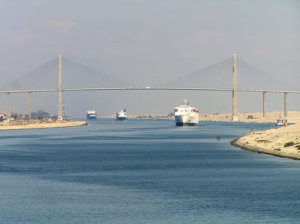
Since 1967 the water resources on the territory inhabited by Palestinians has been under the control of the Israeli authorities who regulate and govern the use of water (both underground and surface sources). It is the Israeli authorities who issue permits for digging wells, the depth of which shall not exceed 60 m (Israel during the period from 1967 to 1990 only allowed the Palestinians to dig 23 new wells), distribute quotas, and pump and transport water in the Palestinian areas.
When peace talks began between Israel and the Palestinians in 1991, the problem of water was a high priority on the agenda. In the interim agreement in 1995 on the West Bank and the Gaza Strip, Israel recognized the Palestinians’ right to water for the first time. The Joint Water Committee was created to coordinate the management of water and sewage systems. Although some experts evaluated the work of the Committee as a good example of cooperation on transboundary water resources, in reality the mechanism demonstrates the power asymmetry in the approach to solving the water problem with the apparent dominance of the interests of Israel. The Israeli-Palestinian agreement in 1995 preserved the status quo on water resources, denying Palestinians access to the Jordan River. Director of the Association of Palestinian hydrologists Abur Rahman believes that “the Oslo agreement gave Israel the right to control water resources. The role of the Palestinian side has been limited to maintaining the resources.” According to him, Israel is stealing 82% of Palestinian water. According to the World Bank, Israel consumes four times more water per person than Palestine.
The Palestinian Water Authority does not have the right to drill new wells or develop new water sources. Water consumption standards for the Palestinian population in the West Bank is 66 liters per person per day (about 24 cu. meters per year), which is equivalent to only 2/3 of the minimum volume recommended by the World Health Organization. For comparison, the figure in most Israeli cities is 3.5 times higher.
About 25% of the population of the Palestinian Authority does not have access to clean water and only 35% have access to modern sanitation, which not only poses a risk to public health, but is also fraught with the deterioration of the population’s water supply, as the waters may be polluted with waste. Lack of water for agriculture as a result of restrictions imposed by Israel has allowed only one-fifth of irrigable land to be irrigated in 1995. Since 1967, the area of irrigated fields Palestinians fell from 27% to 4%, while in Israel, 70% of the area is irrigated. And given the fact that agriculture is the backbone economic activity of the local population, such actions by the Israeli authorities lead to the aggravation of poverty, and this in turn is fraught with political risk.
Since the occupation in 1967, the Palestinians have depended on contributions to the development of Israel’s water resources and water treatment. If the current water situation in Israel is characterized as a crisis, in most Palestinian areas it is even worse. The non-governmental organization Amnesty International has accused Israel of ignoring the development of infrastructure in the Palestinian Authority, resulting in 200 thousand people being left without water.
At the moment, the Palestinians are demanding the provision of free control over water resources in accordance with their strategic plans for the creation of an independent state. The position of Israel comes from the fact that control over water resources is a matter of national security, fearing that the Palestinians could use water as a strategic weapon if they were get to access to transboundary water resources.
The solution can only be the fair proportional distribution of water resources.
Natalya Rogozhina, Ph.D. in Political Science, Head Research Fellow of the Institute of World Economy and International Relations at the Russian Academy of Sciences, and a columnist for the online magazine “New Eastern Outlook”.
